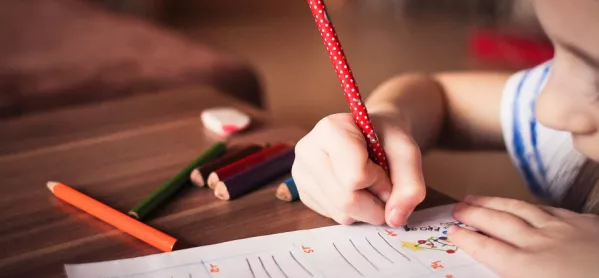I don’t know about you, but I’ve always been a bit confused about homework. Read any school-based novel (or the ones I’ve read anyway), from Mallory Towers to Harry Potter, taking a detour through Anne of Green Gables, and you will find homework, a serious business, playing a prominent part. When I went to secondary school, my parents duly bought me a desk and installed it in my bedroom (thus providing me with a quiet space in which to become studious and not a place for me to dump various random collections of terrible makeup and become the home for the abandoned evidence of my increasingly desperate attempts to straighten my hair), and I, like teenagers before and after me, duly waited for the homework to commence. It was not what I had been led to believe.
The thing is, what most of us know but nobody seems to want to admit is that the vast majority of the time homework is a waste of time. I have three children and I have learned to give thanks that the days of project-makes seem to be over. A prospect second only to the production of a fancy costume (I can do a pirate one, but that’s about it), the "make a castle out of cake" or "papier-mâché river valley" has the power to strike fear into the parental heart, and don’t get me started on competitions to make some sort of creative scene out of an egg or a potato. You know that you will spend the weekend either cajoling your reluctant offspring or making it yourself when what you really need to do is dash to the supermarket, the bank or pick up your prescription from the chemist, and not spend a fortune in Hobbycraft. There will, unless you have one of those children who actually likes making things, be pouting. And I know that posters are a good way for a child to show what they know about a particular topic, but the 10th time in a row they start to wear a bit thin.
If, for a moment, I take off my parent hat and put my teacher one on, I find that I am equally grumpy there too. Teachers go on a lot about developing scholarly attitudes, or a habit for life long learning but after the administration, the finding something connected to classroom learning, the photocopying, the collecting in, the inevitable chasing of children who have forgotten to either do it or get it out of the bottom of their bags, when you take away the doubtful nature of the learning that happened during the doing of it (multiplied by the amount of parental help), it all adds up to not very much gain for an awful lot of effort.
There are exceptions. The afternoon we spent digging around in the garden, looking for wildlife and finding frogs and slow worms and those spiders that dig holes in the ground and jump out to catch their prey – that was lovely. The tea time we spent chatting about what sort of story we would make up based on what we could see out of the window (the wall of someone else’s house; we wondered if Humpty Dumpty was up there, or whether there might be a secret garden), these sorts of questions have become part of our family canon, an enjoyable exercise in wordplay and narrative that makes us laugh and take pleasure in each other’s company. The music teacher, when she leaves them with a list of things to do, teaches me patience and tolerance and my children the power of practice makes perfect.
But. If, as it so often happens, homework, be it reading, times tables, spelling or any number of different permutations, from finishing off to researching a topic on the internet, is the cause of familial strife, of shouting and tears and the building up of a resentment towards schooling from both parent and child, it is, as I have often advised, better off left alone.
Nancy Gedge is Tes SEND columnist, coordinator of the Ormerod Resource Base at the Marlborough School, Woodstock, and author of Inclusion for Primary Teachers.




